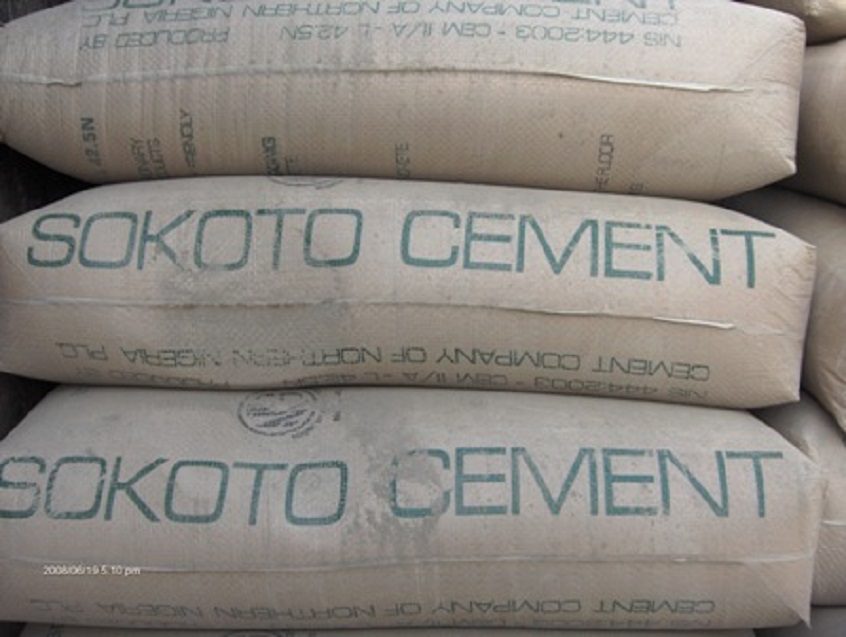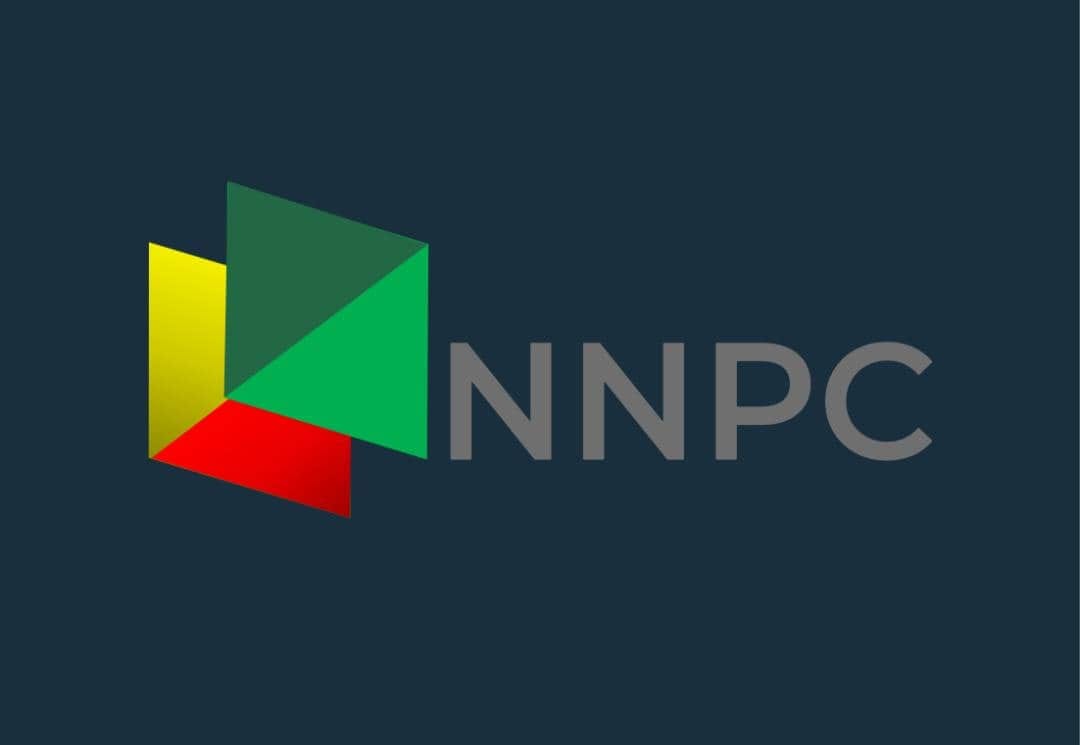Economy
CCNN, Obu Cement to Merge, List New Entity on Stock Exchange

By Modupe Gbadeyanka
Months after merging with Kalambaina Cement owned by BUA Group, the board of Cement Company of Northern Nigeria (CCNN) is considering another merger with Obu Cement Company Plc.
In a notice to the Nigerian Stock Exchange (NSE) on Wednesday, CCNN said it has already gone far with the proposed transaction, noting that it presently needs the authorisation of respective shareholders of the companies involved in the deal.
From the disclosure, CCNN said after the completion of the merger, the company will be delisted on the stock exchange, while the new entity, Obu Cement Company, will join the local bourse.
CCNN said it has already secured the requisite pre-merger approvals from the Federal Competition and Consumer Protection Commission (FCCPC) and the Securities and Exchange Commission (SEC), while it has received a ‘no-objection’ from the NSE.
It said the merger became necessary in order to capture the cement industry in Nigeria. The company said its shareholders will receive shares of Obu Cement in the ratio stated in the respective Scheme Documents.
“The boards of Cement Company of Northern Nigeria Plc (CCNN) and Obu Cement Company Plc (Obu Cement) are exploring a merger of both entities (Proposed Merger) due to a joint aspiration to ensure that the enlarged company is well positioned to grow and expand in the Nigerian cement industry.
“The requisite pre-merger approvals have been obtained from the Federal Competition and Consumer Protection Commission (FCCPC) and the Securities and Exchange Commission (SEC), while a no-objection to the Proposed Merger has been obtained from the Nigerian Stock Exchange (The NSE).
“Furthermore, the order from the Federal High Court (FHC) to convene the separate Court-Ordered Meetings of CCNN and Obu Cement has been obtained.
“Shareholders and other stakeholders are further advised that under the terms and conditions of the Proposed Merger, all the assets, liabilities and undertakings of CCNN, including employees, real property and intellectual property rights, will be assumed by Obu Cement upon completion of the Proposed Merger. “The consideration to shareholders of CCNN will be ordinary shares of Obu Cement. Obu Cement will remain the surviving entity. Consequently, CCNN will be delisted from The NSE and Obu Cement will be listed on The NSE in its place.
“The share exchange ratio, as well as other terms and conditions of the Proposed Merger are provided in the respective Scheme Documents which will be dispatched to all shareholders of CCNN and Obu Cement. The respective Board of Directors recommend the Proposed Merger to shareholders and will be seeking their support and approval at the respective Court-Ordered Meetings.
“The completion of the Proposed Merger is subject to the approval of the respective shareholders of CCNN and Obu Cement and the final regulatory approvals from the SEC, the FCCPC, The NSE, Federal Inland Revenue Service, as well as the sanction by the FHC.
“Further developments will be communicated to shareholders and other stakeholders in due course,” the notice said.
Economy
2026 Budget: Reps Threaten Zero Allocation for SON, NAICOM, CAC, Others

By Adedapo Adesanya
The House of Representatives Public Accounts Committee (PAC) has recommended zero allocation for the Standards Organisation of Nigeria (SON), the National Insurance Commission (NAICOM), and the Corporate Affairs Commission (CAC), among others, in the 2026 budget for allegedly failing to account for public funds appropriated to them.
The committee, at an investigative hearing, accused the affected ministries, departments and agencies (MDAs) of shunning invitations to respond to audit queries contained in the Auditor-General for the Federation’s annual reports for 2020, 2021 and 2022.
The affected MDAs include the Federal Housing Authority (FHA), the Federal Ministry of Housing and Urban Development, the Federal Ministry of Women Affairs and Social Development, the National Business and Technical Examinations Board (NABTEB), and the Nigerian Meteorological Agency (NiMet).
Others are Federal University of Gashua; Federal Polytechnic, Ede; Federal Polytechnic, Offa; Federal Medical Centre, Owerri; Federal Medical Centre, Makurdi; Federal Medical Centre, Bida; Federal Medical Centre, Birnin Kebbi; Federal Medical Centre, Katsina; Federal Government College, Kwali; Federal Government Boys’ College, Garki, Abuja; Federal Government College, Rubochi; Federal College of Land Resources Technology, Owerri; Council for the Regulation of Freight Forwarding in Nigeria; and the FCT Secondary Education Board.
The PAC chairman, Mr Bamidele Salam, while speaking on the decision of the committee to recommend a zero budget for the defaulting MDAs, stated that the National Assembly should not continue to appropriate public funds to institutions that disregard accountability mechanisms.
“Public funds are held in trust for the Nigerian people. Any agency that fails to account for previous allocations, refuses to submit audited accounts, or ignores legislative summons cannot, in good conscience, expect fresh budgetary provisions. Accountability is not optional; it is a constitutional obligation,” he said.
The panel maintained that its recommendation for a zero budget for the affected MDAs is aimed at restoring fiscal discipline and strengthening transparency across federal institutions and conforms with extant financial regulations and the oversight powers of the parliament.
Economy
SEC, NOA to Sensitize Nigerians to Illegal Investment Schemes

By Adedapo Adesanya
The Securities and Exchange Commission (SEC) and the National Orientation Agency (NOA) have partnered to enlighten Nigerians on illegal investment schemes in Nigeria.
The director-general of SEC, Mr Emomotimi Agama, stated this during a meeting with his NOA counterpart, Mr Lanre Issa-Onilu, in Abuja on Thursday, according to a statement from SEC.
Mr Agama said the capital market is an available tool for national development, but beyond all that, there is a tendency for people to do the wrong things that will lead to the impoverishment of Nigerians.
According to him, these are not supposed to be, but many people fall victim due to a lack of knowledge. He stated that these schemes are springing up daily, and those involved are defrauding Nigerians, as people are always gullible because of the need to survive.
“As a management, we decided to move out to enlighten people; we cannot assume that people know, we need to go out for mass communication, hence this collaboration. It is only by co-operation that we can achieve the purpose of our existence,” he stated.
The SEC DG solicited the co-operation of the NOA to reach Nigerians because of its capacity and vast network of mass media, in a bid to ensure that the message reaches every nook and cranny of the country.
“This collaboration is important because it will go a long way in ensuring that Nigerians are no longer victims of these fraudulent schemes. We appreciate that you value this country, and we value the work that you do,” he added.
On his part, Mr Issa-Onilu commended the SEC for the capital market’s achievements in recent times, adding that the commission has not been celebrated enough.
“We commend you and thank you on behalf of the country, but most Nigerians are not aware of the opportunities in the capital market. An ignorant society will fall victim to many things that are avoidable. It is our responsibility to enlighten people to make the right decisions.
“We request that you provide information on what you do to enable us to propagate them. Our primary assignment is to serve all government institutions as the communications arm. We do a lot of enlightenment in places like the religious houses, motor parks, town halls, among others.”
Mr Issa-Onilu said the NOA engages in civic education to create the right values that will help most Nigerians be better citizens, saying that “many Nigerians are deficient in good behaviour. Both the Ponzi scheme promoters and those who patronise them are suffering from the wrong attitude and values.
“We have to encourage people to have the right attitude so they do not fall victim to Ponzi schemes. We have created a lot of platforms to interact with Nigerians.”
Economy
NNPC Records N5.7trn Post-Tax Profit in 2025, Generates N60.52trn

By Adedapo Adesanya
The Nigerian National Petroleum Company (NNPC) Limited booked a Profit after Tax of N5.760 trillion after generating N60.517 trillion in revenue in 2025.
According to its monthly report published on Thursday, the sum of N14.706 trillion was remitted to statutory government agencies.
It said crude production dipped slightly in December, the last month of the year, from earlier months due to scheduled maintenance and several unplanned outages.
The report indicated that crude oil and condensate production averaged 1.54 million barrels per day in December 2025, while natural gas production stood at 6.914 billion standard cubic feet per day.
NNPC further disclosed that its retail outlets achieved 65 per cent product availability in December, while upstream pipelines recorded 100 per cent availability during the period.
On key infrastructure projects, the company stated that the Obiafu-Obrikom-Oben (OB3) pipeline project reached 91 per cent completion, while the Ajaokuta-Kaduna-Kano (AKK) pipeline project also attained 91 per cent completion.
The report from the Nigerian state oil company noted that December production performance was affected by planned maintenance at the Stardeep-Agbami and Renaissance–Estuary Area facilities, as well as unplanned production outages.
In its previous monthly update, NNPC disclosed that revenue declined by 14.17 per cent in November 2025 to N4.358 trillion, down from N5.078 trillion recorded in October.
Despite the drop in revenue, profit after tax rose by 12.3 per cent to N502 billion in November, compared with N447 billion in October.
The report also showed that the company made statutory payments of N967 billion to the government in October, bringing total remittances between January and October to N12.117 trillion.
NNPC said all figures remain provisional pending final reconciliation with stakeholders.
-

 Feature/OPED6 years ago
Feature/OPED6 years agoDavos was Different this year
-
Travel/Tourism10 years ago
Lagos Seals Western Lodge Hotel In Ikorodu
-

 Showbiz3 years ago
Showbiz3 years agoEstranged Lover Releases Videos of Empress Njamah Bathing
-

 Banking8 years ago
Banking8 years agoSort Codes of GTBank Branches in Nigeria
-

 Economy3 years ago
Economy3 years agoSubsidy Removal: CNG at N130 Per Litre Cheaper Than Petrol—IPMAN
-

 Banking3 years ago
Banking3 years agoSort Codes of UBA Branches in Nigeria
-

 Banking3 years ago
Banking3 years agoFirst Bank Announces Planned Downtime
-

 Sports3 years ago
Sports3 years agoHighest Paid Nigerian Footballer – How Much Do Nigerian Footballers Earn












